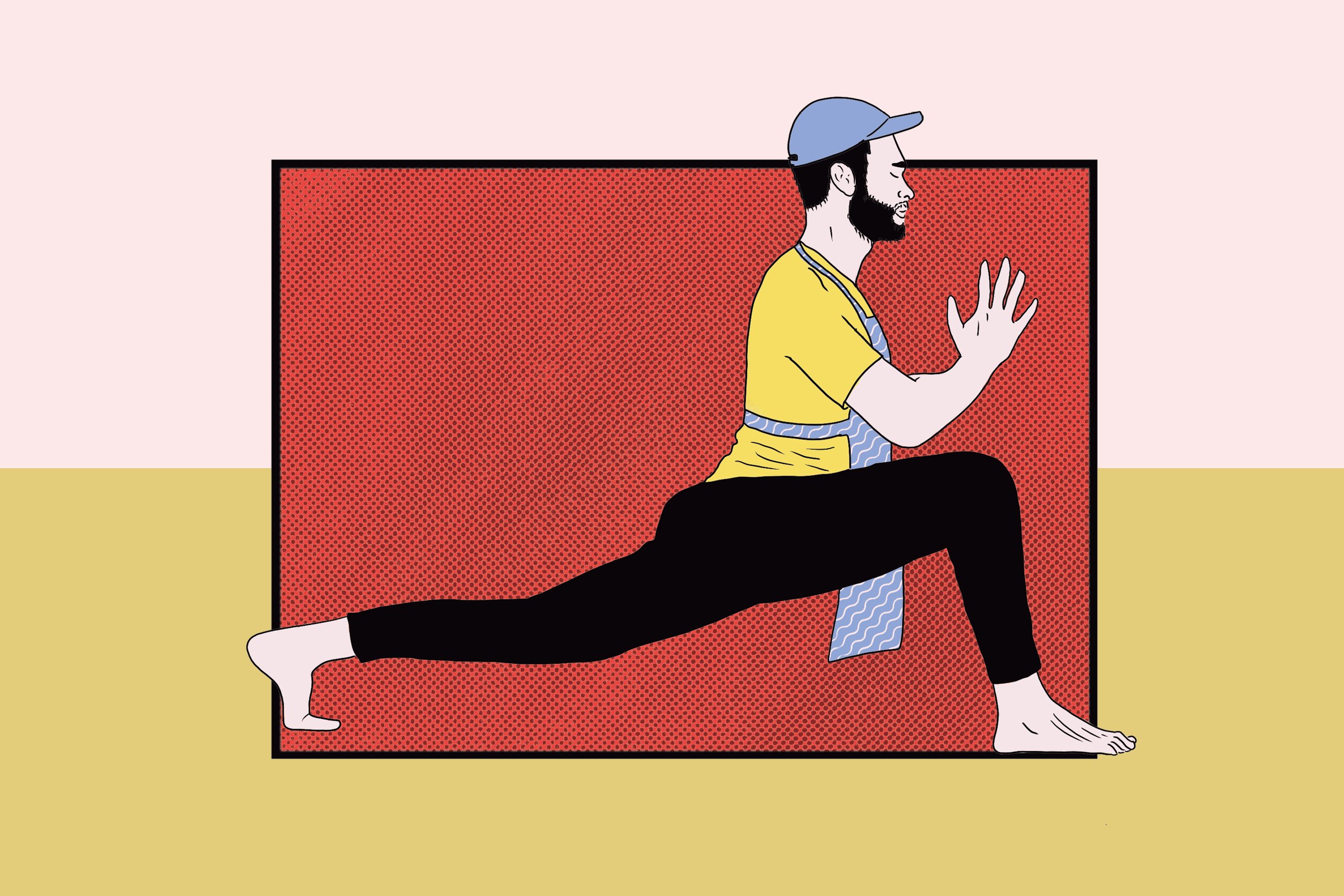Protecting Bakers’ Bodies
At Coyle's Bakeshop there is no toughing it out or hiding pain. Baker/Owner Rachael Coyle has implemented specific strategies to prevent Repetitive Stress Injuries.
At Coyle’s Bakeshop there is no toughing it out or hiding pain. With ovens cranking seven days a week from 4am to 8pm, Proprietor and Baker Rachael Coyle knows that hands, arms, shoulders, knees, backs, and necks are never still at a bakery. To protect the bodies and extend the careers of her 17 employees, Coyle, who has worked in the industry since her first job at Jamba Juice when she was 16, has implemented specific strategies to prevent Repetitive Stress Injuries (RSI).
rachael coyle of coyle’s bakeshop | photos: Megan swann
“I learned pretty early on the thing that happens at bakeries,” says Coyle. “We don’t have ranges or fryers here to cause accidents and injuries. But we do have RSIs.”
Sometimes also called Repetitive Strain Injuries, RSIs are usually, “...a sprain or strain which includes increased inflammation,” says Alyssa Caprara, D.C. “[It] happens a lot to baseball players throwing with one shoulder, and nurses often get them in their backs and knees from bending repetitively and picking people up.”
Think about all of the whisking, folding, kneading, rolling, lugging, and all the other habitual movements that are part of a baker’s day-to-day. Coyle’s sells 1,500 croissants a week. That’s a lot of repetition. “We used to have a sheeter where you had to pull the belt, and now we have a sheeter that is push-button operated. You have to think about how people interact with machines,” Coyle says.
Through attentively operating the machinery in her bakery and closely observing her staff doing the same, Coyle was able to identify a specific repetitive motion and eliminate it from her employees’ daily routine by purchasing different equipment. Decisions like these are a small part of the bigger picture at the Bakeshop. Investing in and maintaining a healthy staff starts with communication.
“We have a primarily female kitchen,” says Coyle. “It changes the culture of the kitchen, from a stoic and macho one, to more warm and fuzzy. If people don’t let you know about [an injury] early on, it gets hard. I had to get my staff comfortable about telling me about how they feel, about any minor twinge. RSIs don’t heal like a cut or a burn. At staff meetings we ask, ‘How’s your elbow?’, ‘How’s your wrist?’” Health insurance is also available to Coyle’s employees through Kaiser Permanente.
The Bakeshop is a small and high-volume, and Coyle, quite intentionally, has a deep bench. The entire staff is cross trained so employees may be rotated through various stations and duties, avoiding repetitive motions as much as possible. And because of the depth and cross training, employees can take a break and get some rest without their absence affecting production.
Scheduling is important. Coyle has been experimenting with 4-10 work weeks—when an employee has the option to work a 10-hour day, four days a week with three days off in a row. So far, two managers have opted for the 4-10 schedule. To make 4-10s work, you have to have at least two people in the same role, so all shifts are covered. “I want to give people the schedule they want. You have to get to know what your employees’ lives are like for scheduling. For us, the biggest thing is hiring people who are going to work here long term. A lot of bakers have been here up to four years,” she says. Coyle was recently able to adopt a schedule that gives her the weekends off (!). “Sometimes I feel guilty, but I’ll be able to do my job a lot longer this way, and I LOVE my job.”
Passionfruit Meringue Tart
Baked goods Spread from Coyle’s Bakeshop
WHAT’S AN RSI?
Repetitive stress injuries include a large group of conditions that primarily affect the soft tissues, including the nerves, tendons, ligaments, and muscles. Repetitive stress injuries are caused by repeated motions performed in the course of normal work or daily activities. (www.verywellhealth.com)
Repetitive strain injury are any of various painful musculoskeletal disorders (such as carpal tunnel syndrome or tendinitis) caused by cumulative damage to muscles, tendons, ligaments, nerves, or joints (as of the hand or shoulder) from highly repetitive movements. (www.merriam-webster.com)
Doctor’s Note: “Properly stretching and strengthening specific muscle groups as well as chiropractic care are often the best prevention for RSIs.” ~M.D. Jane Bennett
TIPS FOR PREVENTING RSIS
Observe how your employees interact with equipment/machinery. Eliminate repetitive motions where possible, sometimes opting for new or different equipment with functionality that’s easier on the body.
Investing in and maintaining a healthy staff starts with communication. Create an environment where employees feel comfortable discussing aches, pains, and other physical or mental ailments.
Build a team with a deep bench, and cross train them.
Get to know your staff and create a schedule that works for them.
It’s ok to bake the croissants on the third day, if it avoids having to schedule employees for punishing night shifts. It helps develop the flavor anyway.
Scones should be baked as close to point of sale as possible. Baking them throughout the day has the added bonus of giving staff a break from that repetitive motion.








